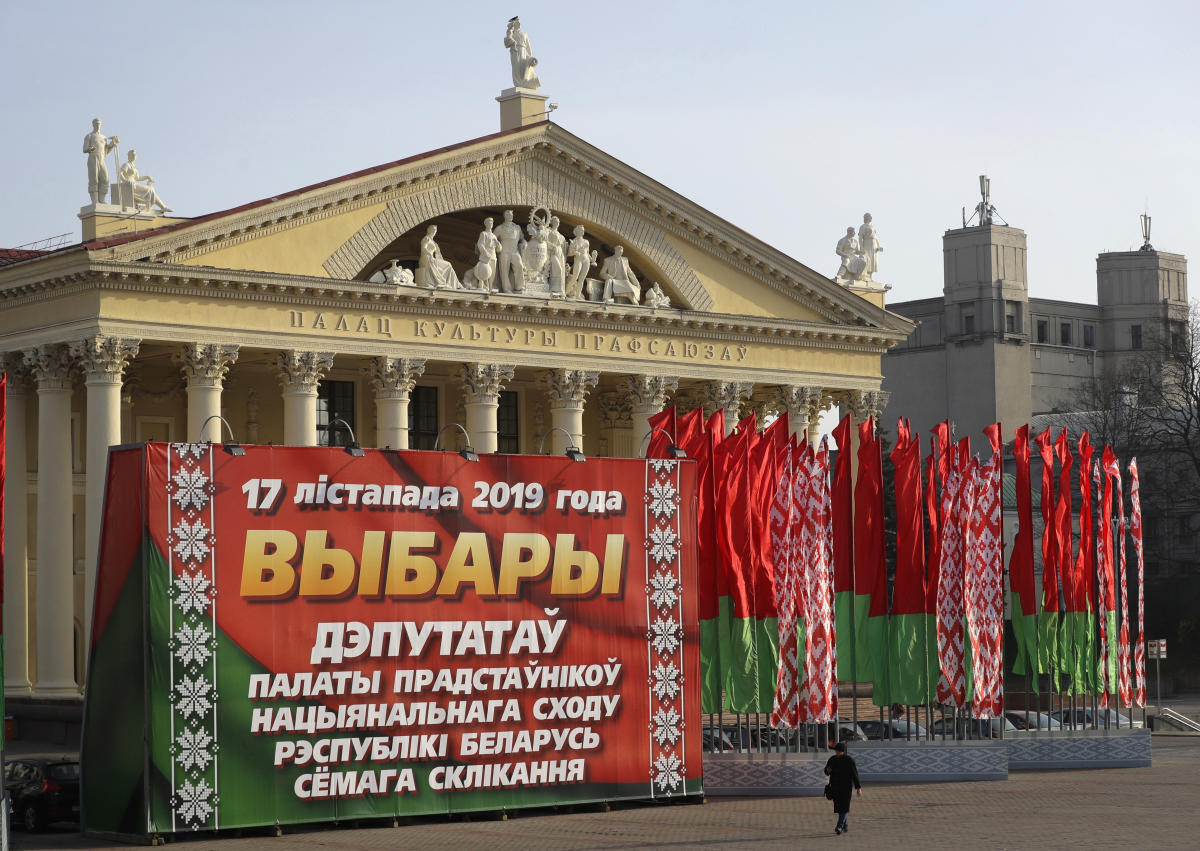Belarus Holds Tightly Controlled Parliamentary and Local Elections Amid Opposition Boycott
TALLINN, Estonia — Polls opened Sunday in Belarus’ parliamentary and local elections, further strengthening the long-standing rule of President Alexander Lukashenko. Despite the opposition’s calls for a boycott, the election is expected to solidify Lukashenko’s authoritarian grip on the country.
Opposition Boycott and Criticism
Belarusian opposition leader Sviatlana Tsikhanouskaya, who exiled to neighboring Lithuania after challenging Lukashenko in the 2020 presidential election, encouraged voters to boycott the elections. Tsikhanouskaya labeled the election a “senseless farce” and criticized the absence of candidates offering real change.
Following the 2020 election, Lukashenko’s disputed victory resulted in widespread protests and a violent crackdown. Thousands were arrested and beaten, and numerous independent media outlets and organizations were shut down and outlawed. Subsidies and political support from Russia helped Lukashenko maintain power throughout this period, allowing him to suppress the demonstrations.
Tight Control and Boycott Accusations
Belarusian election officials reported a 43.64% turnout by 9 a.m. on Sunday, an hour after polls officially opened. However, the opposition claimed the five days of early voting provided an opportunity for manipulation. Over 1,400 political prisoners, including opposition leaders and human rights advocate Ales Bialiatski, currently remain behind bars, prompting significant concerns about the fairness of the election.
Additionally, Lukashenko accused Western countries, without providing evidence, of plotting a coup or attempting to seize power by force. To maintain law and order, Lukashenko ordered an increased number of armed patrols across the country. These moves further demonstrate his determination to assert dominance amidst a deteriorating human rights situation.
Controversial Electoral Process and Lack of International Monitoring
Belarus not only refused to invite observers from the Organization for Security and Cooperation in Europe (OSCE), an influential trans-Atlantic security and rights group, but also removed curtains from voting booths and banned voters from photographing their ballots. Ever since 1995, no election in Belarus has been recognized as free and fair by the OSCE. The absence of external monitors denies the country a comprehensive assessment by an international body and raises concerns about the legitimacy of the election process.
Artyon Shraibman, a scholar at the Carnegie Russia Eurasia Center, stated that the election provides authorities with an opportunity to test their systems after the protests triggered by the previous presidential election. The opposition’s exclusion from campaigning establishes monopoly rule in the parliament and aims to erase any lingering memories of dissent.
The Future of Belarus
After the election, Belarus plans to establish the All-Belarus Popular Assembly, a new state body composed of 1,200 seats. This assembly will comprise key officials, local legislators, pro-government activists, and more. With significant powers and authority, the assembly will have the ability to consider constitutional amendments and appoint election officials and judges.
While Lukashenko was once seen as potentially leading the new body, current expectations indicate that he will remain in power despite the end of his term next year. Belarus will continue to face challenges as it grapples with tense political dynamics and intensified scrutiny from the international community.


